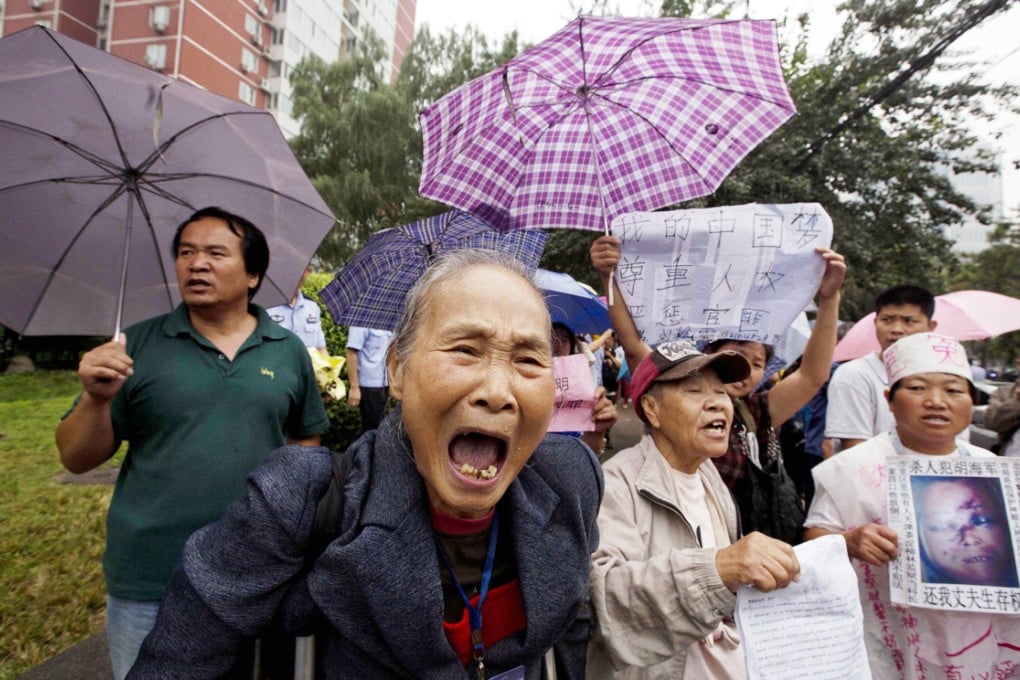Communist Party expels Xu Jie, former petitions bureau deputy, over ‘bribery and adultery’
Graft watchdog says Xu abused his position by demanding and receiving a large amount of bribes

An ex-official in charge of China’s controversial petitioning system, Xu Jie, has been expelled by the Communist Party, which accused him today of taking bribes, adultery and other violations.
The party’s anti-graft watchdog said Xu Jie, who was deputy head of the State Bureau for Letters and Calls, was responsible for a series of cases involving the bureau “severely violating party discipline and the law”.
Party officials are supposed to be morally upstanding and can be punished for morality problems, like adultery.
Xu will be handed over to judicial authorities and be dealt with “in accordance with the law”.
Petitioning has deep roots in China, where courts are controlled by the Communist Party, are often unduly influenced by local governments, and can be seen as beyond the reach of ordinary people.
The system of petitions dates back to imperial times as a means for citizens to bring grievances to the attention of government officials by bypassing the legal system or authorities, especially at the local level.